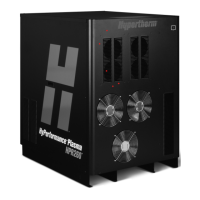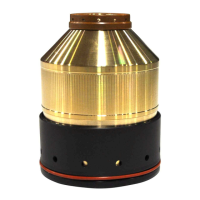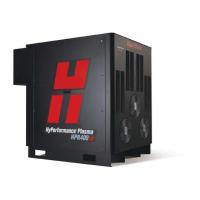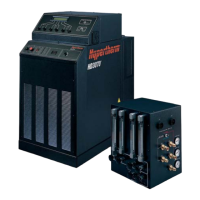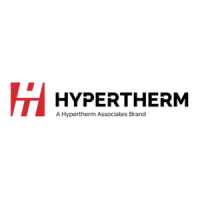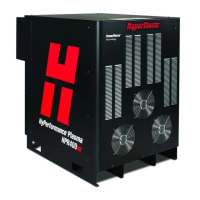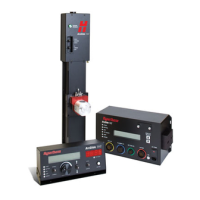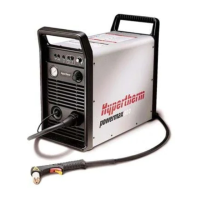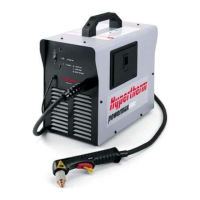InstallatIon
HPR800XD Auto Gas – 806500 3-59
Custom Coolant mix for hot operating temperatures
Water purity requirements
Water purity measurement method
Water purity
Conductivity
μS/cm
at 25° C (77° F)
Resistivity
mΩ-cm
at 25° C (77° F)
Dissolved solids
(ppm of NaCl)
Grains per gallon
(gpg of CaCO
2
)
Pure water (for reference only) 0.055 18.3 0 0
Maximum purity 0.5 2 0.206 0.010
Minimum purity 18 0.054 8.5 0.43
Maximum potable water
(for reference only)
1000 0.001 495 25
Custom Coolant mix for hot operating temperatures (above 38° C / 100° F)
Treated water (with no propylene glycol) can only be used as coolant when ambient temperatures are never
below 0°C (32°F), and chiller process temperatures are never below 14°C (57°F). For operations in very warm
temperatures, treated water will provide the best cooling properties.
CAUTION
When using treated water the chiller default settings must be changed to prevent damage to the
chiller. See the chiller manual for more details.
Treated water refers to a mixture of purifi ed water, that meets the specifi cations below, and 1 part benzotriazole
(BZT) to 300 parts of water. BZT (128020) acts as a corrosion inhibitor for the copper based coolant system
contained in the plasma system.
Water purity requirements
It is critical to maintain a low level of calcium carbonate in the coolant to avoid reduced performance of the torch or
cooling system.
Always use water that meets the minimum and maximum specifi cations in the table below when using a custom
coolant mix.
Water that does not meet the minimum purity specifi cations below can cause excessive deposits on the nozzle
that will alter the water fl ow and produce an unstable arc.
Water that does not meet the maximum purity specifi cations below can also cause problems. Deionized water that
is too pure will cause leaching problems with the coolant system plumbing.
Use water purifi ed by any method (deionization, reverse osmosis, sand fi lters, water softeners, etc.) as long as the
water purity meets the specifi cations in the table below. Contact a water specialist for advice in choosing a water
fi ltration system.
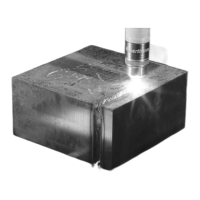
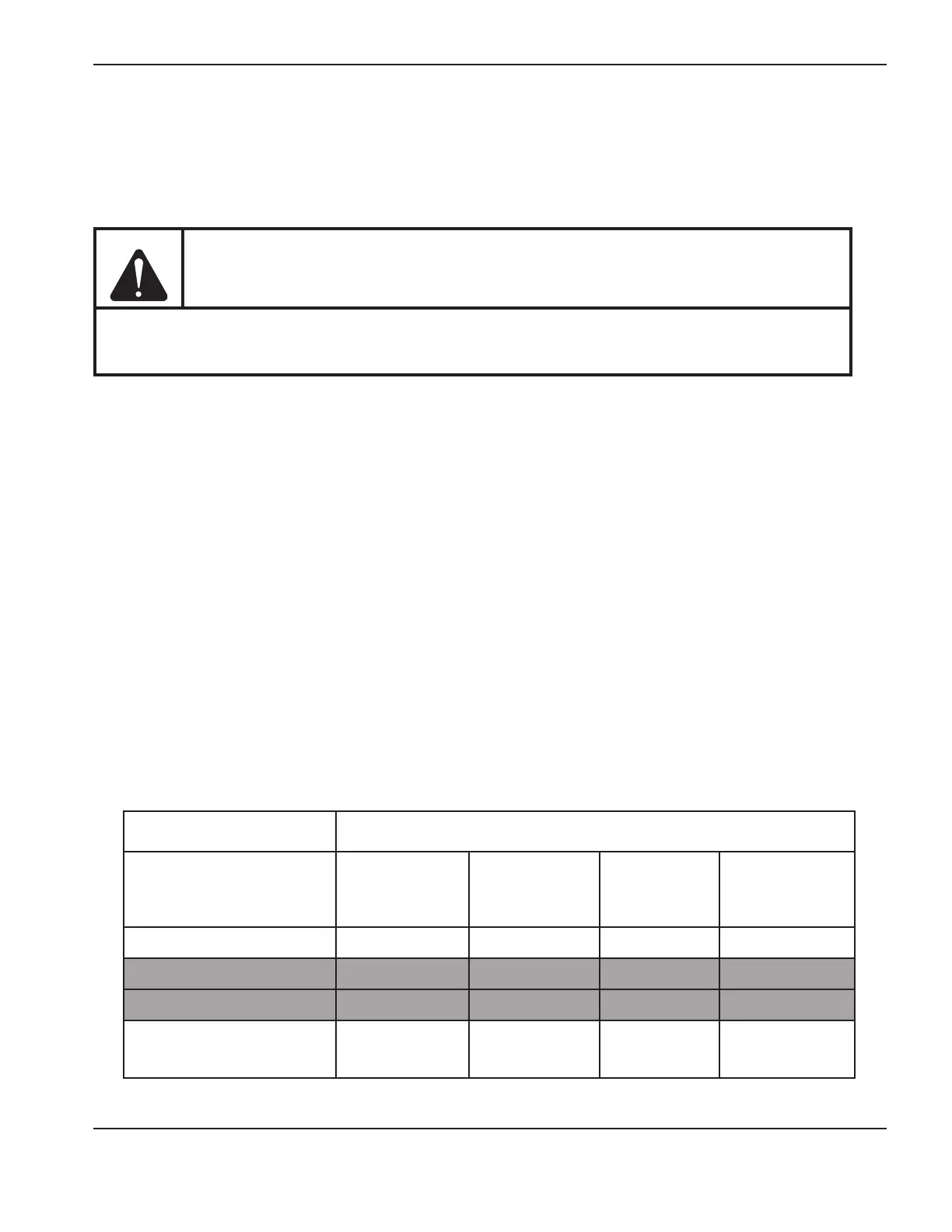